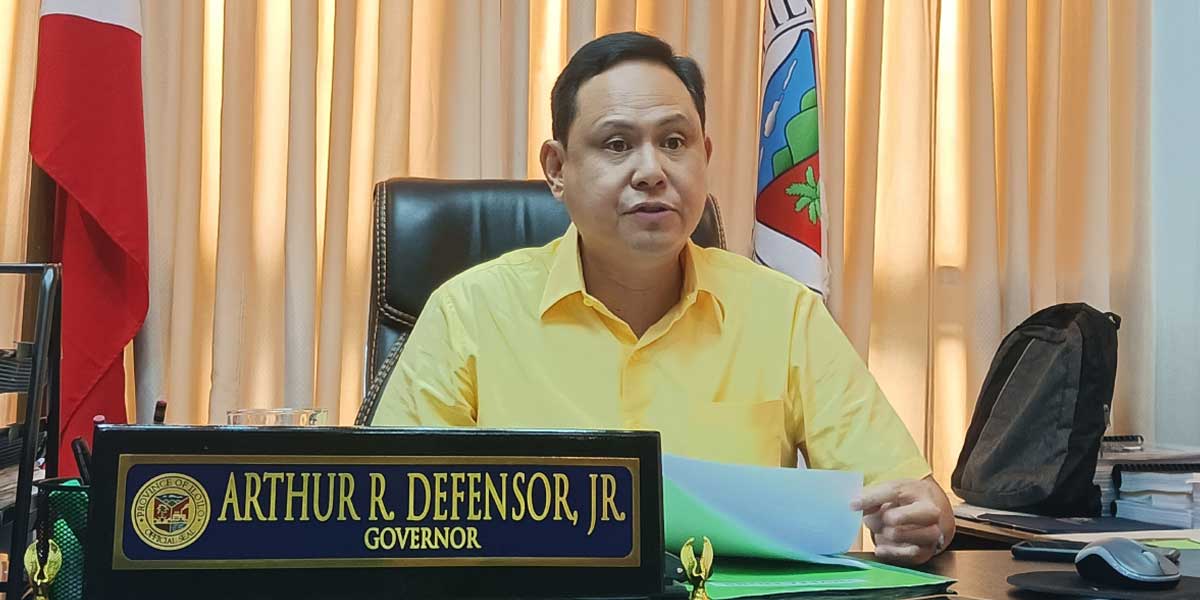
If not for the dedicated rangers of the Tamaraw Conservation Programme (TCP) and Mounts Iglit-Baco Natural Park (MIBNP), the tamaraw might well be extinct. In 1969, the global population of this elusive forest buffalo was thought to have dropped below 100.
After decades of dedicated conservation work, tamaraw numbers rose to nearly 600 and are poised for recovery. Then COVID-19 happened.
The pandemic crippled businesses and operations globally. Since March 2020, most of the Philippines has been under general or enhanced community quarantine. The country’s national parks were closed to prevent the virus from spreading.

This left Mindoro’s Iglit-Baco Natural Park with little funding, cutting off the sole source of income for 32 wardens and one ranger, all members of Mindoro’s indigenous Taw’buid, Buid and Iraya tribes. Indigenous people are particularly hard-hit by the pandemic because they lack access to relief and medical services.
To cover a years’ worth of salaries for these tamaraw frontliners, the Philippine Parks & Biodiversity NGO is forming the Tamaraw Society. Comprised of an initial 20 organizations, the society’s members shall commit to donate or raise PHP20,000 each. The funds will be disbursed through the TCP under the Department of Environment and Natural Resources (DENR).
“Our campaign is a COVID-19 emergency response to unite concerned groups by securing much-needed salaries and allowances for the retrenched frontliners who protect them,” says PH Parks & Biodiversity representatives Nella Lomotan and Ann Dumaliang.

Eight entities have already confirmed their commitments as of July 2020: WWF-Philippines, Masungi Georeserve, Eco Explorations, D’Aboville Foundation, Planet CORA, Fund the Forest, Ecoheroes Philippines and Mr. Oscar Lopez Jr.
This complements #TogetherforTamaraws, a campaign launched in July 2020 by the Biodiversity Finance Initiative (BIOFIN) project under the United Nations Development Programme (UNDP) and the DENR’s Biodiversity Management Bureau and MIMAROPA Regional Office.
“Exotic places like the Iglit-Baco mountain range might seem distant to most people, but they must be conserved. Rangers and wardens need and deserve our support to keep doing good conservation work,” explains Onno van den Heuvel, BIOFIN global project manager.
The park’s wardens serve as guides and porters for tourism and research expeditions while both TCP and park rangers keep poachers at bay, in case the lockdown entices some to illegally enter the park and hunt animals.

Today, only 23 TCP rangers and three MIBNP wardens are patrolling a core area of 2500 hectares inside the 106,655-hectare MIBNP, which hosts at least 480 of the world’s last 600 tamaraw.
“This pandemic should bring forth empathy and not drive us to apathy,” says Occidental Mindoro Congresswoman Josephine Ramirez-Sato. “Let us all show the spirit of Bayanihan by helping our rangers and wardens in saving the tamaraw.”
A total of 20 organizations will comprise the 20 for 20 Campaign. Organizations can help through bit.ly/TamarawSociety or by emailing phparksandbiodiversity@gmail.com.





















